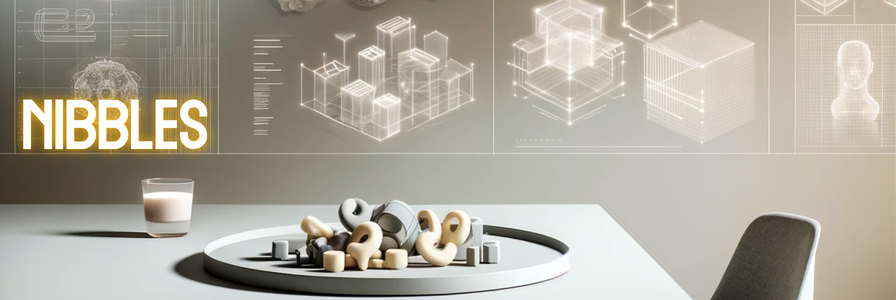Welcome back to AI Hungry, where we dive into the latest advancements that are shaping the future of artificial intelligence. OpenAI is pushing the boundaries with new AI agents designed to autonomously handle tasks on user devices, potentially revolutionizing how we interact with technology. Meanwhile, Google is not far behind, rebranding its AI chatbot Bard to Gemini in a strategic move to compete with OpenAI's ChatGPT, including a premium service tier aimed at enhancing user experience.
In this update, we'll explore these developments and their implications for the AI landscape. Discover how these AI agents from OpenAI could change everyday tasks and how Google's Gemini is positioning itself in the competitive arena of AI-powered chat services.

OpenAI Develops AI Agents for Autonomous Task Execution on User Devices
OpenAI is reportedly creating AI agents capable of autonomously performing complex tasks on a user's device, such as transferring data between applications without manual input. For instance, these agents could move information from a document to a spreadsheet for analysis. Another type of agent being developed can manage web tasks like booking flights without needing third-party APIs. This innovation represents a significant leap from traditional robotic process automation, as these AI agents require minimal user guidance to execute more intricate and unstructured tasks.

Google Rebrands AI Chatbot Bard as Gemini to Compete with OpenAI's ChatGPT
Google has revamped its artificial intelligence offerings, consolidating various AI services under the Gemini model, directly challenging OpenAI's ChatGPT Plus. The company's experimental chatbot, Bard, has been renamed Gemini and will be integrated into Google's Android and Apple apps. Additionally, Google has introduced a premium version called Gemini Advanced, available through a new AI Premium tier in the Google One cloud service for $20 per month, offering more than just chatbot access, including extra storage for Gmail, Drive, and Photos.
The upgraded Gemini is designed to exhibit more personality and better understand user intent. Despite the enhancements, experts note that distinguishing between large language models like Gemini and ChatGPT is increasingly challenging. Google's rebranding of Bard to Gemini aims to improve its market position against ChatGPT, which has seen rapid user growth since its launch. While Google has not disclosed user numbers for Gemini, it is initially launching in English in the US, with plans to expand to the Asia Pacific region.


🌐 OpenAI's Sam Altman Eyes Massive Investment in AI Infrastructure. OpenAI CEO Sam Altman is planning to expand AI infrastructure, seeking to raise up to $7 trillion for chip fabs, energy, and data centers. This move involves partnerships and potential investment from Middle Eastern entities, despite concerns over strategic supply control. (Link)
🤖 AI Ethics Debate: Balancing Innovation with Caution. At the World AI Cannes Festival, experts debated the ethical development of AI, comparing it to nuclear technology and discussing the potential risks and regulations. The EU plans to oversee AI with new rules and fines. (Link)
🔍 AI2 Unveils OLMo: A Fully Open Source Large Language Model. The Allen Institute for AI has released OLMo, a fully open source large language model with complete transparency in its design, training, and evaluation, aimed at empowering research and reducing carbon footprint in AI development. (Link)
🚨 Hong Kong Clerk Falls Victim to $25.6 Million Deepfake Scam. A Hong Kong company clerk was deceived into wiring $25.6 million by deepfake impostors posing as his colleagues. This incident highlights the growing sophistication of cyber attacks using generative AI, prompting a need for advanced cybersecurity measures. (Link)
🌐 Google Joins Forces with C2PA to Enhance Digital Content Transparency. Google has become part of the C2PA's steering committee, joining forces with Adobe, BBC, and others to develop Content Credentials, a metadata standard aimed at proving the authenticity of digital content. (Link)
🌐 Disney Invests $1.5 Billion in Epic Games for a Connected Universe. Disney has invested $1.5 billion in Epic Games to create a connected universe, signaling a significant endorsement for the metaverse concept. This move comes after Disney previously shut down its own metaverse division in 2023. (Link)



